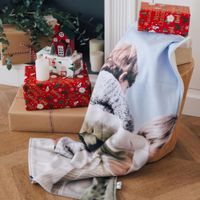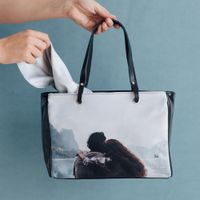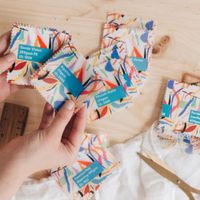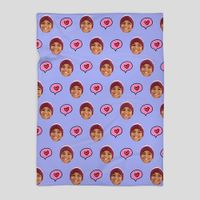Huge leaps forwards
Digital printing on leather has made huge advancements in recent years and, we are proud to say, we too have made advancements with it. Using top-of-the-range equipment and techniques, we can create printed leather to superb quality, and with our custom leather printing service, you can use your photographs and designs to create stunning leather prints.
What Leather Is
Leather is the hide or skin of an animal and one of the oldest materials that we still use today. It has come a long way since the very beginning, we can now offer custom leather printing, but in the grand scheme of things, how we use leather and the way that it is prepared for use has not really changed much at all. Natural leather occasionally comes with blemishes or indents due to the way that the leather is processed to be used in clothing and accessories. This is entirely normal and where possible we avoid using the damaged areas of the skin, for larger prints this may not always be possible.
Where We Get It
It's safe to say that we've now covered that leather comes from animals, but which ones? When you say the word 'leather' people in the UK tend to immediately think of cows, however, this is not always the case. In France, pig leather tends to be the most common. You can also obtain leather from sheep, horses, lamb, deer and elk. Reptilian hide is popular for its distinctive patterns, kangaroo leather is great for motorcycle accessories as it is resistant to abrasion, and ostrich leather is becoming increasingly popular as it features a 'goosebump' effect. In Thailand, stingray leather is popular for belts and wallets because of its durability.
Leather Preparation
Needless to say, we don't take leather straight from the animal and make it into a jacket; we can't go straight into the custom leather printing. It has to go through a process that we call 'tanning' before it can be used. It's a three-step process to manufacture leather in a usable state.
Step One
First and foremost, you need to prepare the hide. This includes liming, which uses a drink and paddle to soak the hide in an alkali solution, which is immediately followed by de-liming, which uses an almost identical process to remove the alkali from the pelt and to lower the pH level. It also includes removing all of the hair from the hide, de-greasing it, bleaching it, and finally pickling it. The leather pickling process is usually done to help the tanning agents penetrate the leather during step two.
Step Two
This is the actual tanning part of the process. The tanning stabilises the proteins in the hides which prevents them from rotting. A tanning liquor is used to immerse the hide in a giant drum. This drum is slowly rotated, allowing the tanning liquor to penetrate through the entirety of the thickness of the hide. Once coated evenly, the pH of the liquor is raised which fixes the liquor to the leather. This is known as basification and makes your leather more resistant to shrinkage.
Step Three
The third and final step is known as crusting. This thins and lubricates the leather. If the leather is to be coloured that too is done at this stage. The crusting process finishes with drying and softening the leather, and may sometimes also consist of splitting, shaving, dying or whitening. Some tanners or tanneries may oil the leather to improve water resistance, however, this isn't permanent, and the oils will wash out with over-exposure to water.
Expansion is Key
Here at Bags of Love, we have put more focus on expanding our leathers. The leather that we have stocked the longest is our stunning Nappa leather, and this is full-grain bovine-calf leather. We have introduced more types of leather, including corrected grain, double butt, recycled leather board and more. Our leathers are no longer just goat leather; we offer both smooth and debossed finishes and we are keen to continue with this expansion project. We have introduced a leather swatch pack, which will be continuously updated as we introduce more leathers into our range, and we are starting to offer more and more leather products and accessories, not just the leathers themselves.
Modern Techniques
Modern printing methods allow us to carry out digital printing on leather directly onto the surface of the material, eliminating the need to print onto a coating that is then applied. This works beautifully on all of our printed leathers and is not interrupted by the texture. Details are printed with superb clarity and fine lines up to 2pt are created with ease. Colour reproduction is amazing, offering rich and vibrant tones. The prints become as strong as the custom leather printing itself for a fantastic personalised finish.













